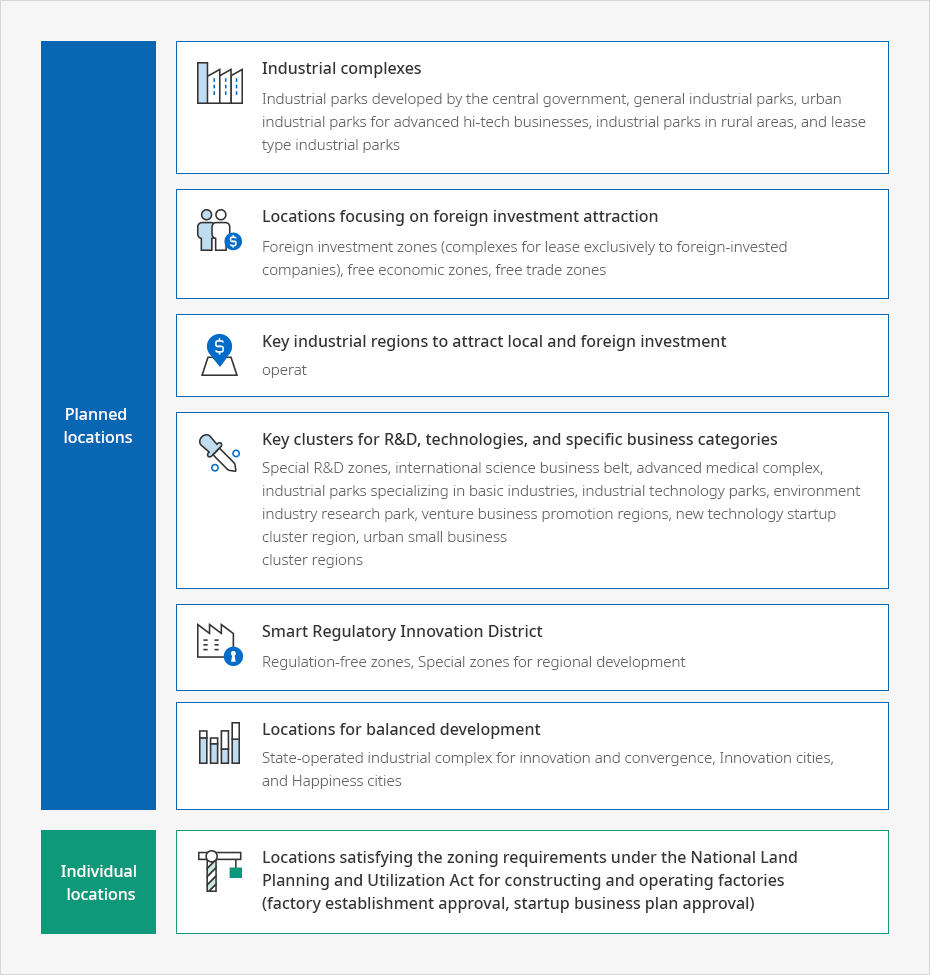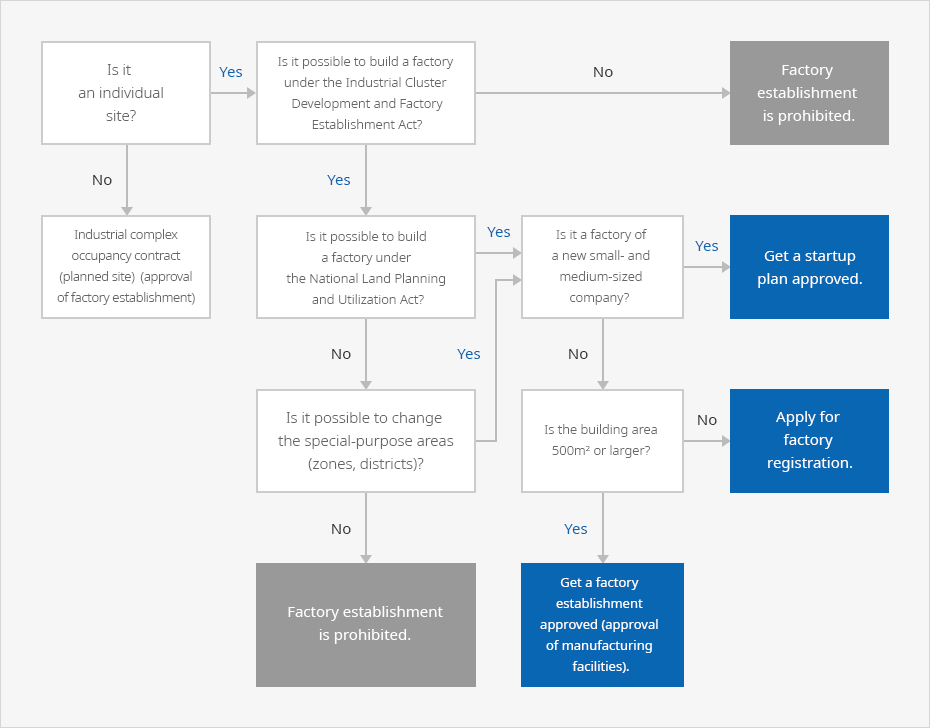Korea has been promoting industrial location policies to secure areas for production and operation, select quality locations, and
recommend factory establishment in industrial complexes for the sake of systematic management. However, if it is unsuitable to establish
a factory in an industrial complex due to reasons such as business conditions and land prices, it is possible to purchase a separate site
and obtain necessary licenses and permits to establish a factory.
Planned Location (Industrial Complex)
An industrial complex is an area designated and developed under a comprehensive plan to collectively set up industrial facilities and
support facilities for employees and users. Assistance is provided to companies wishing to secure factory sites and find partner
companies and human resources through clustering and the smooth supply of raw materials and parts. In recent years, industrial
complexes have striven to establish industry-academia linkages and connect various support facilities.
Industrial complexes differ by location depending on the purpose of construction, while there are differences in the way industries are
managed from location to location. Even within the same manufacturing industry, different business types can be located in different
locations, while regulations for operation and management may differ by complex.
For example, despite being designated as an industrial complex, a foreign investment zone (industrial complex-type) and a national food
cluster can exist within according to a "basic management plan" for each complex. A free trade zone, the Saemangeum zone, and
INNOPOLIS are operated according to respective regulations, for example. Occupancy requirements for free trade zones are defined in
the Act on Designation and Management of Free Trade Zones.
In the same context, industrial complexes cannot accommodate all location types. Special�purpose regions are redundantly or
individually designated, or industrial parks are designated in a special-purpose region. Representative examples are foreign investment
zones and free economic and trade zones, which are industrial locations developed to attract foreign direct investment.
Individual Location
Individual location refers to any location except one within a pre-designated and developed location. In the event that a company
purchases or leases land outside of an industrial complex or in a building in an urban or residential area, a factory can be established via
acquisition of authorizations and permissions for altering usage.
When a company selects an individual location for manufacturing purposes, it is possible to occupy the location as a factory or Type II
neighborhood lifestyle facilities (manufacturing establishment) under the "Enforcement Decree of the Building Act." However, since the
whole property is designated as a "special purpose area" under the "National Land Planning and Utilization Act" and thus can be
restricted from area to area, ascertaining the building use as well as restrictions as prescribed by the Act and local government policy
should take precedence for new construction. Areas restricted for factory establishment can be altered to special purpose areas through
an alteration of the "urban or county management plan," although approval from an urban planning committee is required.
※ Refer to "Standards for Factory Location" or Enforcement Decree of the National Land Planning and Utilization Act about the type of business by usage and location.
Pros and Cons of Industrial Complexes and Individual Locations















